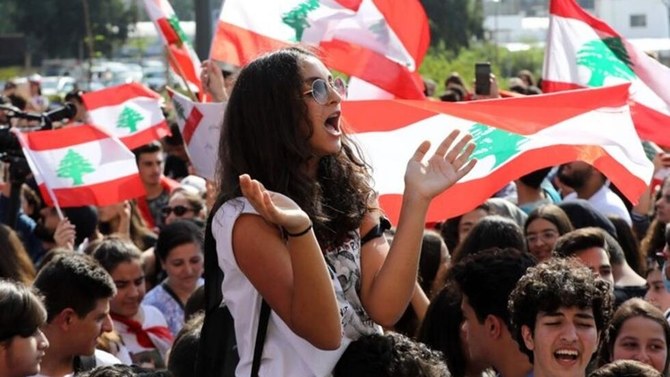Khaled Abou Zahr
Videos and images of wild summer parties are flowing through social media. Yet the ones that have been most talked about are not from Ibiza, Mykonos or Saint-Tropez but from Beirut. These clips have foreigners wondering how this works. How, in a country in full crisis and a state of disintegration, can there be concerts, entertainment and fun? There are several answers, all of which tell us about Lebanon and its people.
A funny post of a Lebanese comedian holding a board stating, “I hope the IMF does not see Lebanese social media,” hit the nail on the head better than any of us commentators could manage. This references the fact that, if the International Monetary Fund were to see the posts, it would surely cancel any aid or support to Lebanon, as they project happiness and prosperity. The reality is that the disintegrating government and its tyranny and corruption do not represent the Lebanese. They have, in turn, learned to live and bypass it to find solutions in the face of its ruthlessness. Whether it is for electricity, healthcare, business or security, they count on themselves and not the useless national institutions. In these images, there are undoubtedly the hands of many of the Lebanese diaspora that come back to visit their home country during the summer and inject hard currency into the economy. The local food and beverage scene has become dependent on them, just like the entire economy, with remittances being the most important pillar and, for many homes, their only source of revenue. This is the true contradiction. A country of entrepreneurs, of creators, is reduced to a state of dependency. And so, if we dig down, there is the true, sad story of Lebanon. A large majority has reached an unprecedented level of poverty, while the figures for starvation have become even more alarming.
Many Arab friends who have seen these party videos shared their views with me by stating that one cannot bring down the Lebanese. Despite the troubles, the insecurity and the political disintegration of their country, they still have a spark and want to enjoy life and live it to the full. They also continue to talk about how, no matter how many times the country is destroyed, they will rebuild and continue with their daily lives. And this is the true problem; it is not that they are dancing while the country is burning and, let’s face it, ignorance (or denial) is bliss. It is that they accept building on rotten ground; they accept the dirty political system; they accept the dirty occupation. One after the other and throughout history. This is what needs to change. These contradictions have always been there. And, in all transparency, it is not the fact that Lebanon lights up during summer that shocks me. It is that we still have a character like Hassan Nasrallah come out on television, shake his finger and threaten the population and the stability of the country. This was very symbolic in the summer of 2006, when we had the Lebanese enjoying their lives on the one side and tensions building up and Nasrallah threatening stability on the other. This is the true contradiction in Lebanon. The occupiers want an archaic vision of unnecessary martyrdom for the country, while most Lebanese want to live.
This is further proof that Lebanon is de facto not a viable centralized state and therefore needs a new political system. Each community needs to make its own decisions. I have always been a supporter of the federal system for Lebanon, though many criticize it as a ploy by part of the Christian community to destroy the country. As a Sunni, I also think it is the needed solution, maybe for different reasons. I see it as the best way to put our community in front of its responsibilities, take charge and decide if we want to follow the path of darkness or of enlightenment. It is a struggle the Lebanese Sunni need to face, and no one can do it for them. As long as we have the current system, it will empower the bad and the violent. Moreover, regarding these accusations against the Christians, we need to ask why Lebanon was different to Syria or any other country in the Levant? The truth is that, without the Christian community and the efforts it put into education and enlightenment at a time when the Middle East was still sleeping after the Ottomans had left, there would be no Lebanon. Lebanon was and still is its own contradiction within the Levant region. However, the qualities that made Lebanon different and the Lebanese a special breed of creative entrepreneur that is successful in many fields are disappearing. This richness of culture mixing together was the spark of creativity. Now, unfortunately, it is disappearing. There is no way the country can be saved in its current status, so the Christians, as all others, should have the right to try and protect this heritage.
It is well known that, even during the terrible years of the civil war, the Lebanese still knew how to live and enjoy life. But it is now high time to build, preserve and prosper, not dance on the rubble and rebuild fading copies of what Lebanon can and should be. A federal system is the right path to this; even if the delivery might be painful, it is the only way forward. Let each community face down their leaders, hold them accountable and refuse their trading games with the occupier and their business acolytes. It is time for a cleanup to revive the country before it is too late.







